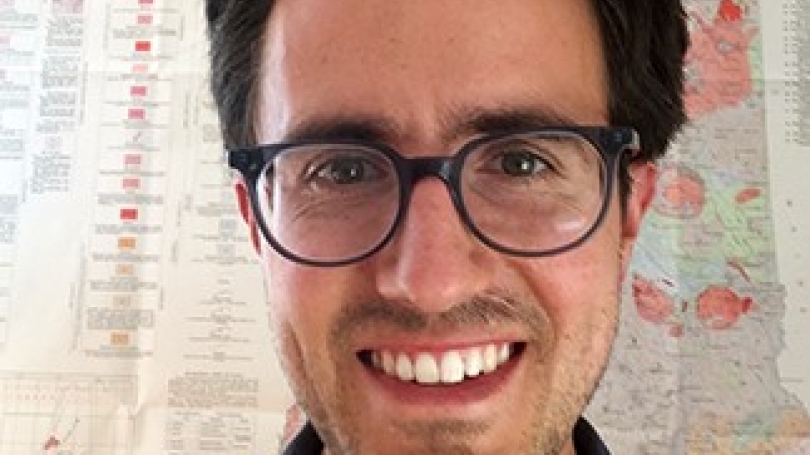
- Undergraduate
- Research
- Off-Campus Study
- News & Events
- People
Back to Top Nav
Back to Top Nav
Garrett is a historical geographer who became interested in studying the connection between social life and landscape transformation after taking courses on the history of landscape architecture as a Social Studies major at Harvard College. Garrett spent a year studying transitional urban planning in post-socialist Albania before completing a master’s degree in Landscape and Culture at the University of Nottingham as a UK Fulbright Scholar. He then completed a doctoral dissertation at the University of Wisconsin–Madison which focused on debates about what kinds of “unit” areas are best suited for the political and technical work of planning.
Garrett is most interested in the way that ideological beliefs about social belonging are shaped by the geographic setting of people in places, and, in turn, how the power of groups to act in unison shapes the landscape. He describes himself as trying to bridge old problems and new ways of thinking. “Many of the questions I’m interested in have been on the minds of geographers for more than a century,” he says. “I’m trying to bring those into dialogue with contemporary ways of understanding themes like difference and justice, as well as with new methods borrowed from both the humanities and data science.” He also emphasizes the importance of historical geography as a synthesizing discipline: “History covers everything to do with time, and geography everything to do with space. Put those together and you have a pretty big job on your hands.”
Some of Garrett’s recent works include “Walking and Talking Through Walks and Talks: Traveling in the English Landscape With Frederick Law Olmsted, 1850 and 2011,” which was a 2016 Honorable Mention for the Journal of Historial Geography annual prize; and “An Economic Geography of the United States: From Commutes to Megaregions,”which was featured in numerous publications, including the Washington Post and National Geographic.
While at Dartmouth, Garrett is working on his book project, which focuses on geographic-definition problems in the history of American planning. He’s also at work on a number of other projects, including one on regional economic geography, participatory land planning, and electoral districting. In Spring 2018, he’ll teach a new course on “Critical Mapping and the GeoHumanities.”